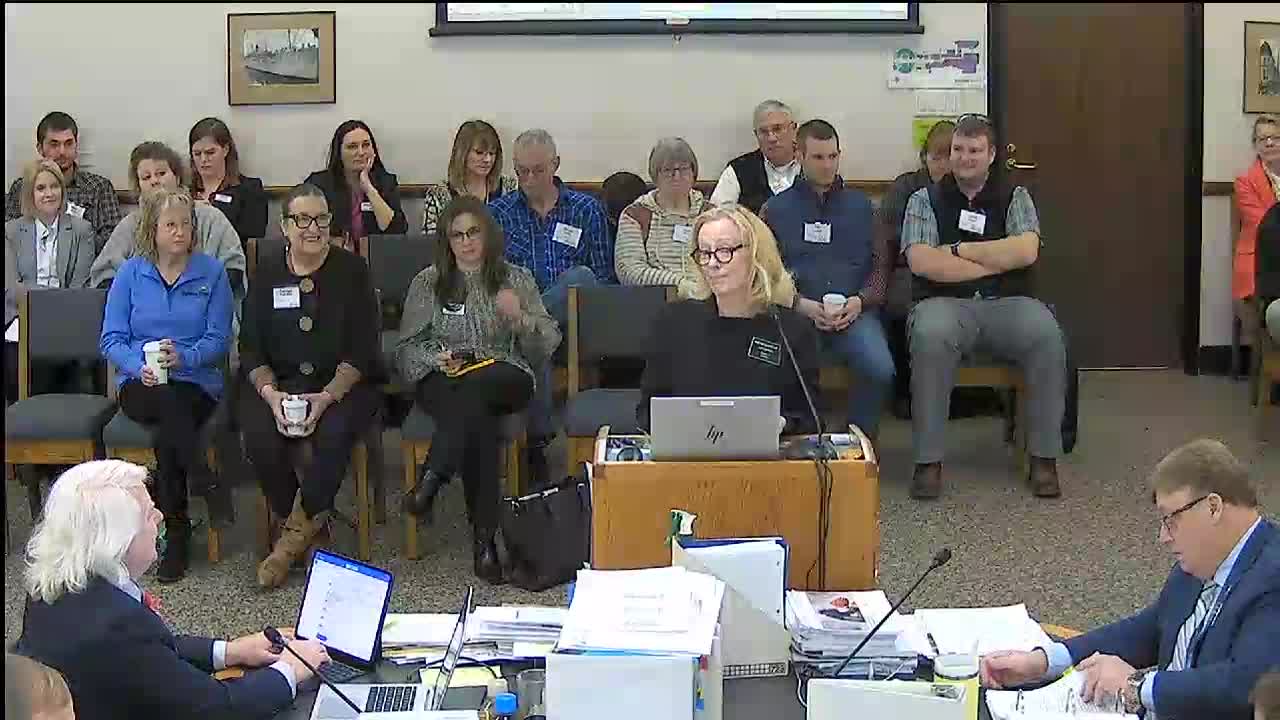Article not found
This article is no longer available. But don't worry—we've gathered other articles that discuss the same topic.
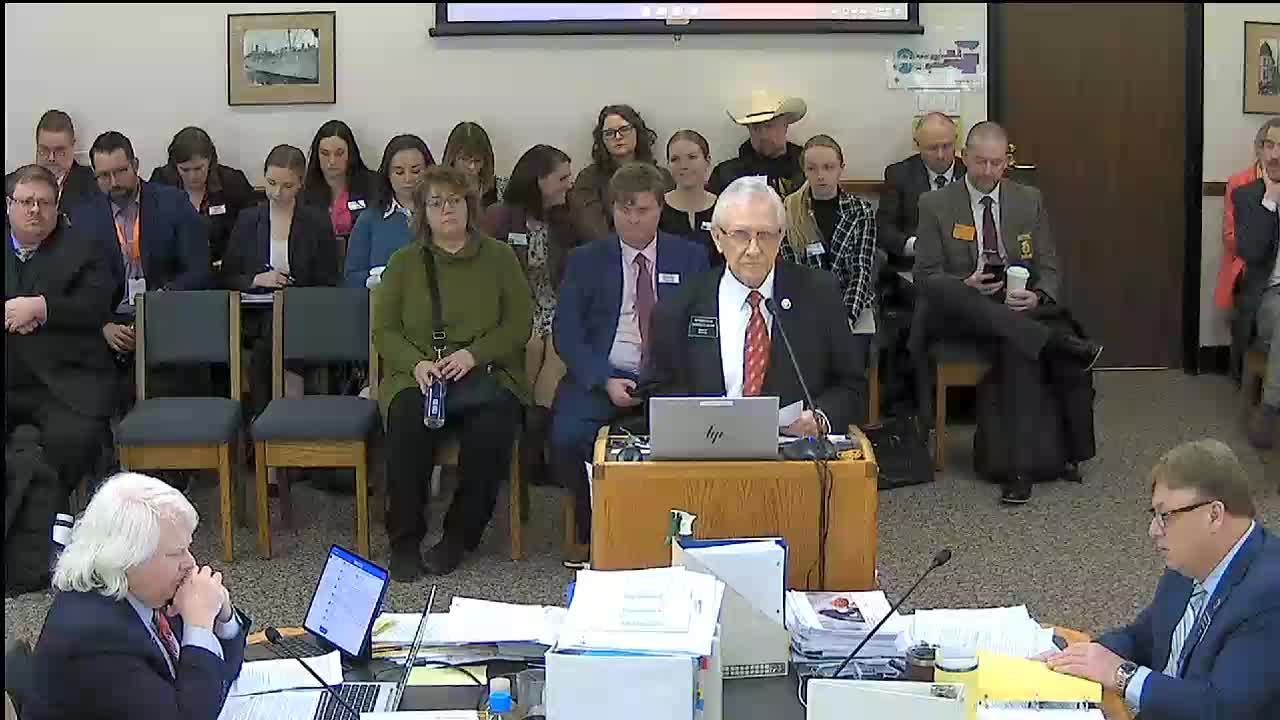
Appropriations committee hears three‑bill reentry package aimed at reducing recidivism and improving transitions
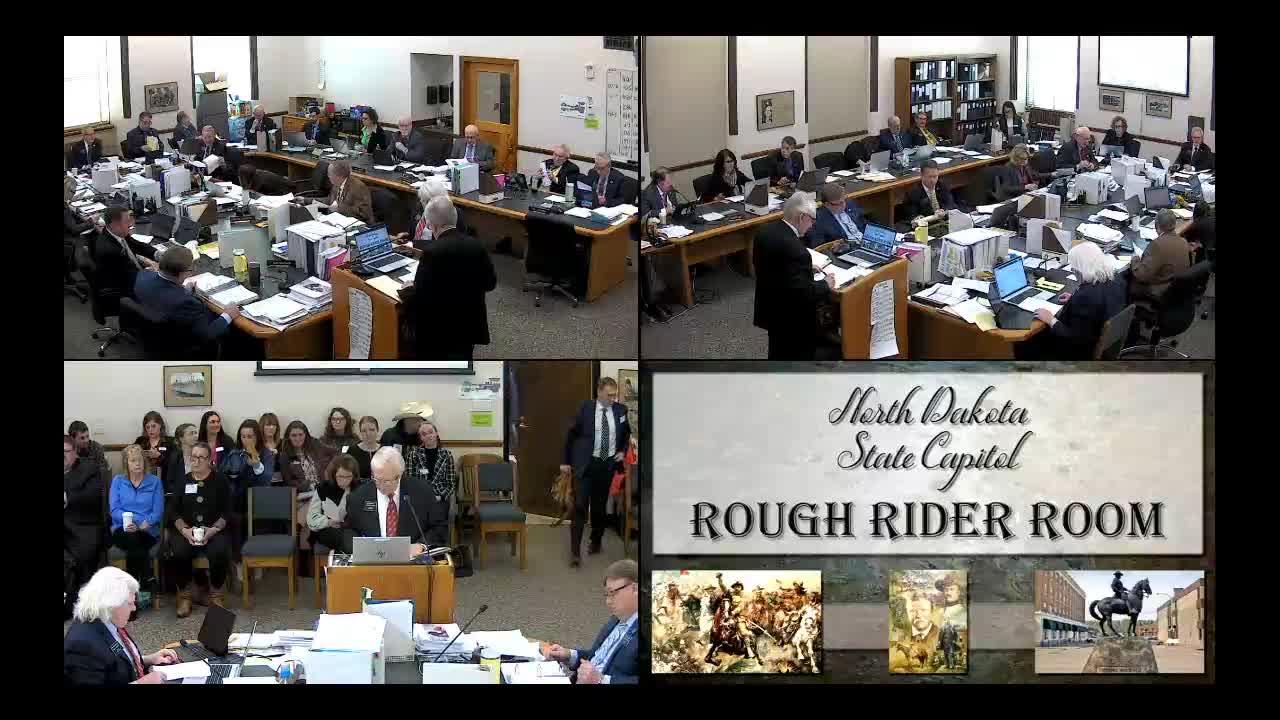
Appropriations committee approves $400,000 for UND immigration law clinic; bill passes on voice vote
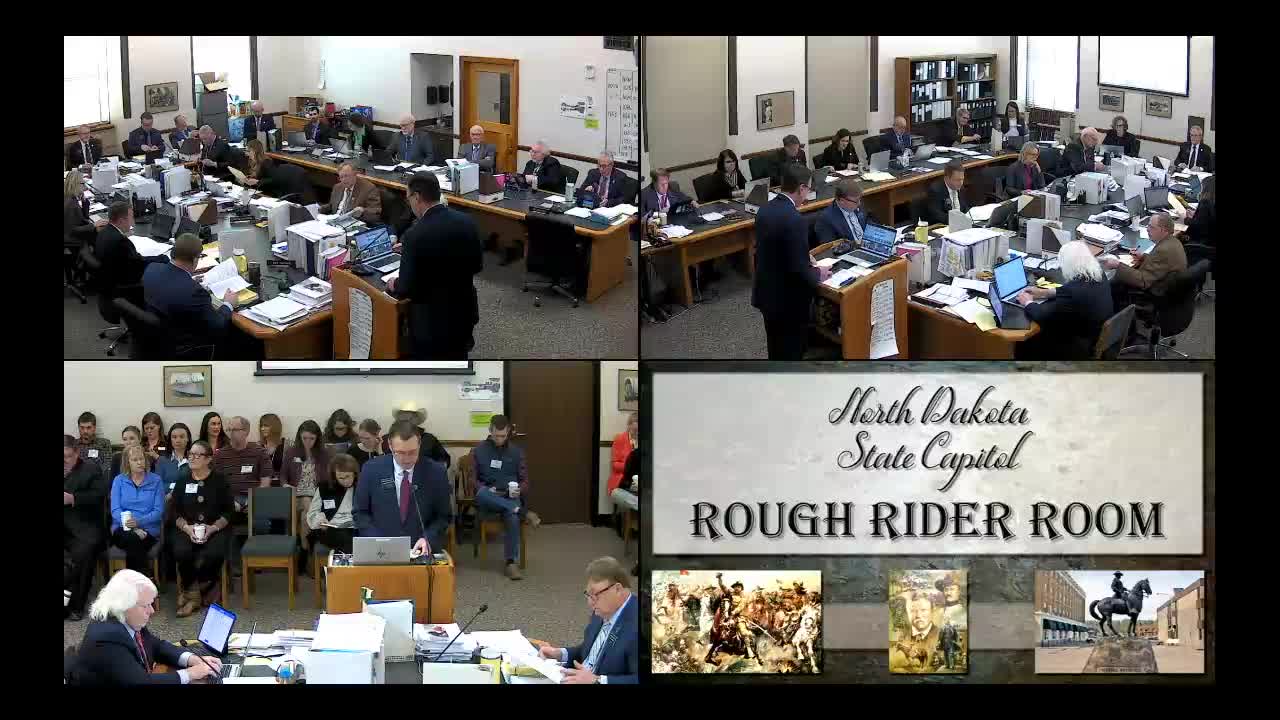
Bill would move reduced‑cigarette enforcement fund into Insurance Regulatory Trust Fund; committee delays action
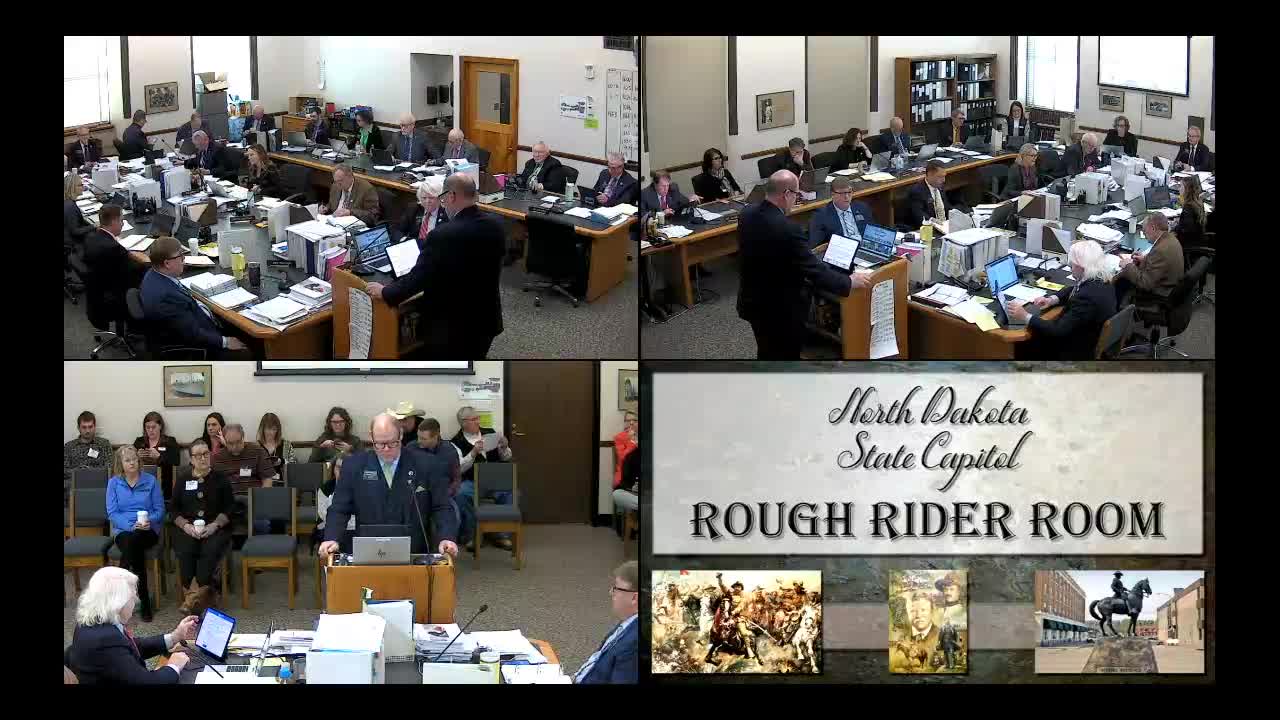
Committee hears $5 million proposal to help small political subdivisions install natural gas distribution
